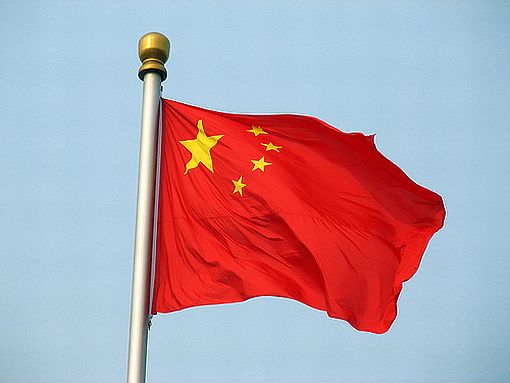The United States has warned China that the Senkaku Islands were covered by the Japan-U.S. Security Treaty...
Visiting U.S. Defense Secretary Leon Panetta told Chinese National Defense Minister Liang Guanglie in Beijing that the security treaty obligating the United States to come to the defense of Japan would be applied to the Senkakus, which are called the Diaoyu Islands in China.

A high-ranking U.S. government official in a position to know the details of the Sept. 18 meeting between Panetta and Liang confirmed to The Asahi Shimbun what the U.S. defense secretary said.
The source added that Liang expressed China's strong opposition to having the security treaty applied to the Senkakus.
http://ajw.asahi.com/article/asia/china/AJ201209210061
Panetta's remark reinforces the stance of the United States that it considers the Senkakus under the scope of the security pact, because it is under the effective control of Japan.
Panetta's comment apparently was an attempt to directly inform Chinese officials that Washington was not changing its position on national security in East Asia and to ensure that Beijing did not take any drastic action over the Senkakus.

CHINA DOWNPLAYS U.S. WARNING

Meanwhile, China was doing its best to downplay any possible negative effects from the Panetta remark.
The People's Daily, the mouthpiece of the Chinese Communist Party, ran a commentary in its Sept. 20 edition that said, "The U.S.-Japan Security Treaty is a byproduct of the Cold War era and should not damage the interests of third parties, including China."
The piece went on to say, "Any nation that seeks to interfere in the Diaoyu Islands issue will experience a loss of their interests."
There are some Chinese officials who feel the United States was behind the nationalization of the Senkakus by Japan.
One Chinese government source said, "As long as we contain the actions of the United States, Japan will stop its provocative actions."
Visiting U.S. Defense Secretary Leon Panetta told Chinese National Defense Minister Liang Guanglie in Beijing that the security treaty obligating the United States to come to the defense of Japan would be applied to the Senkakus, which are called the Diaoyu Islands in China.

A high-ranking U.S. government official in a position to know the details of the Sept. 18 meeting between Panetta and Liang confirmed to The Asahi Shimbun what the U.S. defense secretary said.
The source added that Liang expressed China's strong opposition to having the security treaty applied to the Senkakus.
http://ajw.asahi.com/article/asia/china/AJ201209210061
Panetta's remark reinforces the stance of the United States that it considers the Senkakus under the scope of the security pact, because it is under the effective control of Japan.
Panetta's comment apparently was an attempt to directly inform Chinese officials that Washington was not changing its position on national security in East Asia and to ensure that Beijing did not take any drastic action over the Senkakus.

CHINA DOWNPLAYS U.S. WARNING

Meanwhile, China was doing its best to downplay any possible negative effects from the Panetta remark.
The People's Daily, the mouthpiece of the Chinese Communist Party, ran a commentary in its Sept. 20 edition that said, "The U.S.-Japan Security Treaty is a byproduct of the Cold War era and should not damage the interests of third parties, including China."
The piece went on to say, "Any nation that seeks to interfere in the Diaoyu Islands issue will experience a loss of their interests."
There are some Chinese officials who feel the United States was behind the nationalization of the Senkakus by Japan.
One Chinese government source said, "As long as we contain the actions of the United States, Japan will stop its provocative actions."


